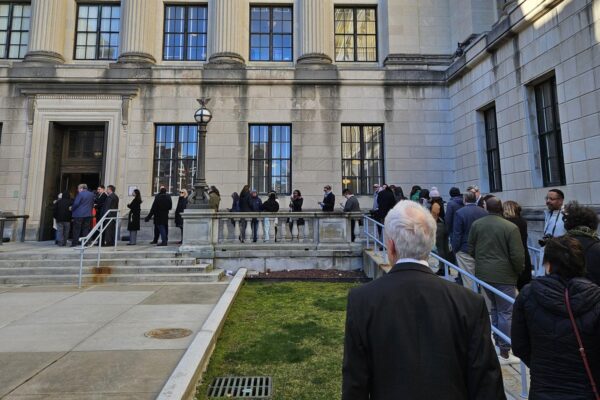New Jersey’s Open Public Records Act (OPRA) is an indispensable vehicle for government transparency. By delineating access to public records, OPRA helps New Jerseyans exercise their First Amendment rights, including freedom of the press and the right to petition the government. OPRA is also an essential tool for advocacy groups, like the ACLU-NJ and our partners, to obtain public records that inform our work to protect and expand civil rights and civil liberties for all.
But in the past month, New Jersey elected officials have made it a top priority to roll back OPRA by fast-tracking a bill that would severely limit the public’s ability to access information – information that belongs to the people and is fundamental to holding government officials accountable.
OPRA was established to maximize transparency while balancing the government’s limited but important interests in privacy and security. If passed, the bill (S2930/A4045) would require overly specific information for requests, remove mandatory fee shifting provisions, and restrict access to emails and call logs – upending the balance OPRA was designed to create, and dismantling fundamental aspects of the current law that are essential to achieving meaningful transparency.
In an attempt to dilute the staunch opposition to this bill, the Legislature held simultaneous committee hearings on Monday – but it only took minutes for both to reach capacity, as the line stretched out the door and down the State House steps. The testimony was overwhelmingly in opposition and delivered by a range of advocates and activists, union and faith leaders, journalists and community members, all with unique perspectives but united in one message: Any attempt to undermine transparency and restrict access to public information is a threat to democracy.
Despite this outpouring, both committees approved the bill, moving it toward a full floor vote.
In recent days, some lawmakers have been intent on dodging accountability by claiming to have included advocates’ viewpoints in the bill language. That couldn’t be farther from the truth.
When some legislators indicated they intended to modernize OPRA, the ACLU-NJ and our partners spent months urging the bill sponsors to prioritize strengthening the transparency provisions under OPRA, rather than dismantling them. But lawmakers disregarded calls to strengthen New Jersey’s democracy, favoring deals made under a fabricated sense of urgency, behind closed doors, in shadowy backrooms – where votes were traded, and understandably skeptical committee members were substituted from the hearing roster in the final hour.
Our state may be notorious for scenes like these in popular media, but New Jerseyans deserve more from their elected representatives. The irony is lost on no one that the process by which lawmakers have fast-tracked this bill – legislation meant to make it more difficult to access government records – is one of the shadiest in recent memory.
New Jersey is better than this. New Jersey must be better than this.
But at this crossroads, we know this to be indisputable: Democracy requires transparency, and New Jersey has a responsibility to preserve a functioning government where power is placed rightfully in the hands of the people.
The public must be able to see what contracts officials are signing, how their tax dollars are spent, what meetings and communications are being had and with whom, what checks agencies are writing and why, and which police officers are being disciplined and for what.
These are just a few instances in which OPRA could be strengthened and expanded to ensure the public’s access to vital government records. Without building on the transparency provisions provided under the current law, the public’s right to access these materials will die in darkness.
New Jersey has shown it can be a national leader on civil rights and civil liberties – it’s time to prove that again, by protecting and expanding the public’s access to government records, not restricting it. The ACLU has a long track record in this fight – we’ve certainly seen attempts to roll back fundamental rights before, but here’s hoping we won’t see it again.




